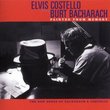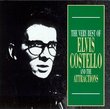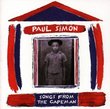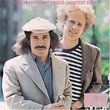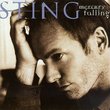| All Artists: Ludwig van Beethoven, Riccardo Muti, Delores Ziegler, Philadelphia Orchestra, Cheryl Studer, Peter Seiffert Title: Symphony No. 9 Members Wishing: 0 Total Copies: 0 Label: EMI Classics Release Date: 4/20/1999 Genre: Classical Styles: Historical Periods, Classical (c.1770-1830), Modern, 20th, & 21st Century, Symphonies Number of Discs: 1 SwapaCD Credits: 1 UPC: 724357328425 |
Search - Ludwig van Beethoven, Riccardo Muti, Delores Ziegler :: Symphony No. 9
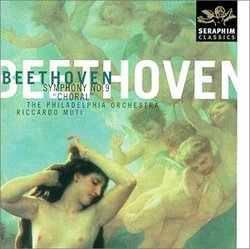 | Ludwig van Beethoven, Riccardo Muti, Delores Ziegler Symphony No. 9 Genre: Classical
|
Larger Image |
CD DetailsSimilarly Requested CDs
|
CD ReviewsJoy From Philadelphia Erik North | San Gabriel, CA USA | 04/09/2003 (5 out of 5 stars) "Without question, Beethoven's Ninth Symphony is one of the greatest works in the history of Western music. And although there are literally hundreds of recordings of this epic masterpiece, this mid-1980s recording by the great Philadelphia Orchestra with Riccardo Muti on the podium is one of the best.At 72 minutes in length, this is a deliberately paced recording, but one which never drags. The celebrated opening shimmering of the strings (a hallmark of the vaunted Philadelphia sound) gives us a very good idea of how Muti and the orchestra are going to proceed. The dramatic soundscape of the first movement is then followed by a vivid performance of the explosive scherzo, whose main theme Muti chooses to repeat twice. The celebrated Adagio, full of poignancy, is a great showcase for the orchestra's legendary string section and the woodwinds.Then we come to the epic finale, where the themes of the first three movements are initially repeated, to then be replaced by the "Ode To Joy" melody, first in the orchestra alone, and then in the vocal form that earned this work the nickname of the "Choral" Symphony. It is rendered with exceptional skill and power by a quartet of great singers--Cheryl Studer, Delores Ziegler, Peter Sieffert, and James Morris--plus the great Westminster Symphonic Choir.Taking over where Leopold Stokowski and Eugene Ormandy left off, Muti wisely kept the Philadelphia Orchestra's traditional sound in tact, but he also added some new musical muscle to it, as well as that "singing" quality to it that he learned from having done operas. Those qualities show up in this recording of the Beethoven Ninth; and it is for those reasons that I strongly recommend it to any classical music lover, even if you have more recordings of it than you can count. It is a winner." Splendid Ninth PERIOD, not just among bargains Robert Kirsch | 01/10/2007 (5 out of 5 stars) "After listening to this Ninth and comparing it to Karajan's 1963 recording I was shocked to discover that was an improvement over Karajan. The sound quality is totally top-notch, but more importantly Muti conducts the orchestra with such clarity -- the chorus absolutely shines, rather than becoming muddled and obscured by the stings as in the Karajan rendition. Also, if you listen carefully you will notice that Muti uses bass much more effectively than Karajan. Karajan may have the more prestigious reputation, but I have to evaluate what I'm hearing - Muti's 9th assuredly belongs in the upper echelon of 9th recordings. In general Seraphim classics offers quality bargains, but this takes the cake." An enjoyable entry among bargain Beethoven Ninths Santa Fe Listener | Santa Fe, NM USA | 06/02/2006 (4 out of 5 stars) "With access to quite a few of Muti's bargain-priced CDs from his Philadelphia years, I thought I should find some of the best to recommend. This Beethoven Ninth stands out for gorgeous playing by the Philadelphia Orch, clear sonics from EMI, and an accomplished, if not at all origianl, interpretation from Muti.
We don't have to compare him to Karajan, Furtwangler, and Toscanini--there's no point--but if you like Beethoven to sound generally mellifluous rather than revolutionary, this Ninth is a good choice in the bargain class. Only the opening moments of the first movement and most of the slow movement lack inner tension. In the finale the vocal quartet, though not particularly German, was about the best in the world for pure singing, especially James Morris in his totally secure call to joy. The chorsu is precise but quite aggressively miked, as are the solo quartet." |

 Track Listings (4) - Disc #1
Track Listings (4) - Disc #1